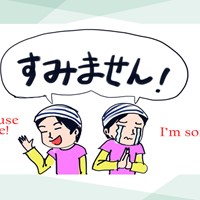Things You Didn't Know About Japan and Japanese People Part 2

This page contains affiliate links.
This article is contributed by Tokyo Central Japanese Language School.
Hello everyone! I'm Eri, a Japanese language teacher. I'm working at a Japanese language school in Tokyo. International students often tell us, "The Japanese are strange." or "Japan is difficult. This time, I'd like to share with you "What International Students Didn't Know About Japan and Japanese People part 2"!
The Part 1 is here.
There are also many other articles covering Japanese language such as "What you need to know about "Good" and "Bad" in Japanese", "Business Telephone Conversations in Japanese", "Japanese Language Exchange: Find a Partner to Talk With", and more.
Japanese people don't like to use "Hima(free time)"?
I was asked by an international student with a worried face, "Eri-sensei, was my Japanese funny? I asked her in detail what she meant...
<Student>
I wrote an essay in Japanese, so I wanted to ask my homeroom teacher, Yamada-sensei, to check it.

When I asked him, she said, "Sensei, if you are free, could you look at my essay? I said. When I asked him for help, I said, "Sensei , if you are free, could you look at my essay?".

Yamada-sensei looked puzzled and said, "Hmmm..." Was my Japanese strange? I could somewhat understand why Yamada-sensei said, "Hmm...".
Probably, the part "if you are free" bothered him.


It is grammatically correct, but..." I was confused. Considering Yamada-sensei's reaction, the teacher got a not-so-good impression of the student. I told my student that it is rude to say "Are you free?" to a superior. The student was surprised to learn that even though the grammar was correct, it was rude.
When I told my student that"Do you have time?”or "If you have time," were better ways to ask, and my student asked me "Japanese people don't like to use “Hima/free time”?, so I was puzzled by this question.

There was another story where I said, "You (Sensei) are very good at teaching," which made my teacher get angry, and another story of get other person get annoyed when I complimented the other person's clothes, which made the other person say, "Ie ie, son na (No, no, no)....
International students seem to have trouble conveying their praise. In Japanese, "praise" means "evaluation," and it is common for the superior to praise the inferior.
When praising others, you can have better communication If you have good understand of Japanese culture and the way of thinking.

















